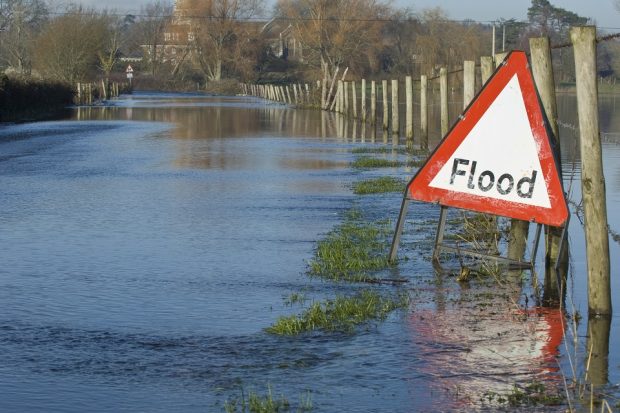
On Monday evening BBC One aired a Panorama programme on climate change titled ‘Britain’s Wild Weather’, which examined and explored the nation’s preparedness for more hot and wet weather events in the years to come.
The programme demonstrated the scale of the challenge posed by climate change, using locations such as flood-hit Mytholmroyd in West Yorkshire, and Hemsby in Norfolk, which continues to be affected by severe coastal erosion as examples of what could be seen elsewhere in the UK in the future.In Mytholmroyd the Environment Agency is currently investing over £40 million through the local Flood Alleviation Scheme developing new, raised and improved walls, the strengthening and water proofing of structures adjacent to the channel, the widening of the channel in a number of key locations and the relocation of a bridge.
Government overall is providing record investment for flood and coastal defences, with £5.2bn being spent over the next 6 years to better protect 336,000 properties from flooding across England by 2027.
With more extreme weather expected, the new Flood and Coastal Erosion Risk Management Strategy also sets out how we will build up the resilience of millions more homes and businesses as part of the EA’s green recovery plan into the next decade.
A Government spokesperson said:
The UK is a global leader in tackling climate change, becoming the first major economy to commit to reaching net zero emissions by 2050.
We are also bolstering our resilience to climate change, providing a record £5.2 billion investment in flood defences and ensuring vital infrastructure is resilient to extreme weather.
The Government recognises the importance of tackling overheating and our upcoming consultation will consider the best ways of doing this – ensuring homes are fit for the future.
An Environment Agency spokesperson said:
Flooding devastates lives, livelihoods and communities but Environment Agency flood schemes protected almost 130,000 properties during the winter 2019/20, even though water levels were higher in some places than the floods in 2007 when 55,000 properties flooded.
We are on track to better protect 300,000 homes across England by March 2021 from flooding and have a clear plan to build 2000 new defences protecting another 330,000 properties by 2027.
However, the climate emergency means that we need to adapt and we cannot always build defences to stop every incident occurring. That’s why we are working together with communities through our new flood strategy to improve resilience and to help high-risk areas recover more quickly after an incident.
2 comments
Comment by John Baxter posted on
We should stop building homes with the specifications of enhanced mud huts in flood plains and listen to our own rhetoric that said we would have wetter winters with more extreme weather......so to reduce damaging gas emissions and attempt to save the planet we should specify as a minimum, much better improved new housing, and stop building in flood plains.
Invest sensibly and the benefits will trickle down....eventually.
Fail to invest as we have re: coastal erosion and we shall reap our just rewards!.
Comment by William Hughes-Games posted on
You can't do a lot, long term, about coastal areas. Your best wave barriers will be over-topped and at best you will delay the inevitable for a cost of billions of pounds. However you can do something about floods from the land. With the changing climate, weather precipitation events seem to be coming in more extreme events and, oddly enough, drought events seem to be getting more severe. You can build thousands of concrete dams in the catchment to mitigate the floods and store water for the dry periods at unbelievable costs or you can apply to nature to help you. Not only is the nature solution far far less expensive but it is self healing/perpetuating and has a whole raft of secondary benefits.
https://www.youtube.com/watch?v=wI5AjJd00cM